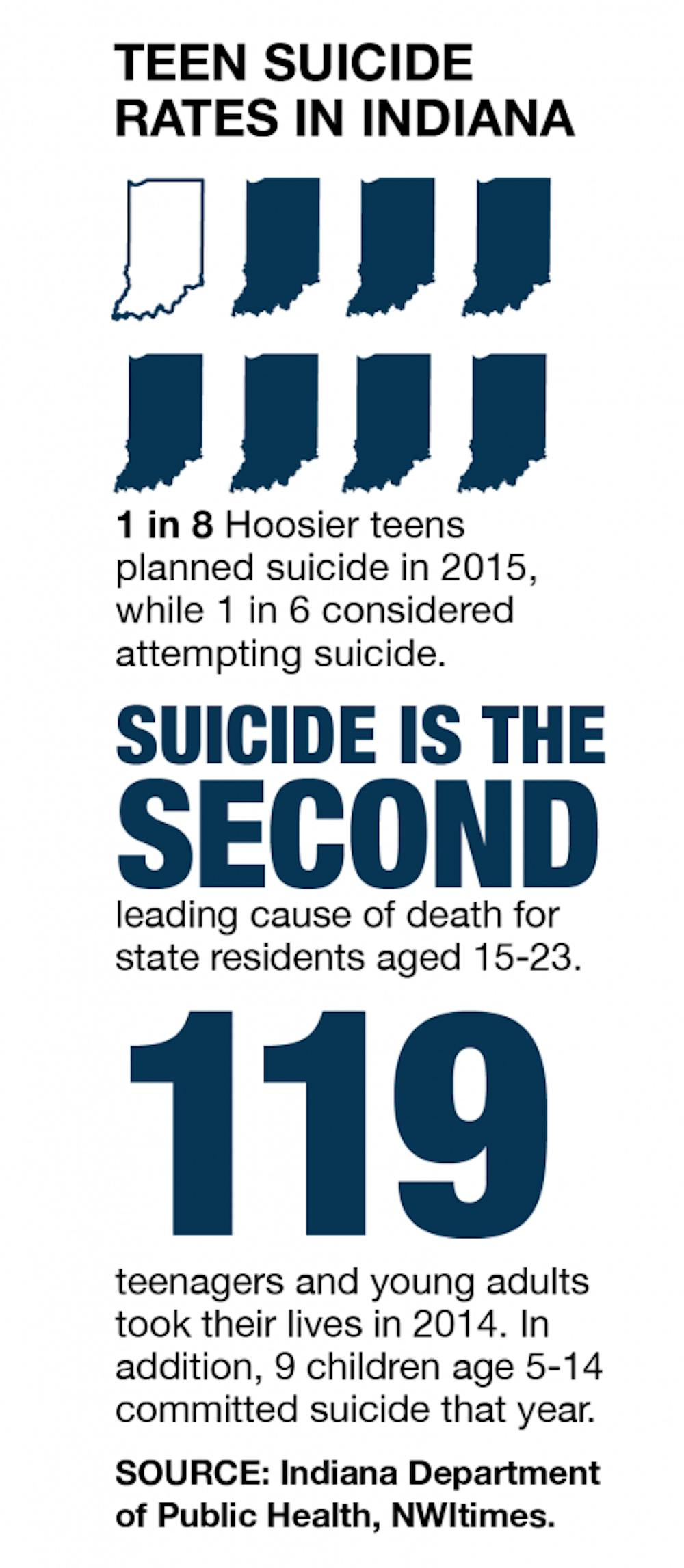Although all data has not been accounted for by the National Center for Health Statistics, suicide is still ranked in the top 10 causes of death in 2016.
With suicide as the second leading cause of death for ages 15-23, Indiana lawmakers are working on legislation for the new year that would be aimed at reducing the suicide rate among Hoosier children, teens and young adults.
According to the most recent data available by The (Northwest Indiana) Times, 119 Indiana teenagers and young adults and nine children between the ages of five and 14 committed suicide in 2014.
Because of these statistics, Logansport Republican state Sen. Randall Head proposed a plan to develop legislative plans that would call for incentives to attract more behavioral health professionals to Indiana and to create a state suicide prevention coordinator to ensure local and regional anti-suicide programs, according to The Times.
The Senate Bill 506 proposal is set to be filed at the Statehouse this month.
Head told The Times that he feels this proposal will enhance the role of teachers and all school employees in suicide prevention. He envisions that all educators will be required to participate in suicide prevention training at least once every five years.
The last piece of the bill includes requiring post-secondary institutions to adopt a policy focused on suicide information, something that William Whitehair, Ball State alumni and teacher, said should already be happening.
"Teachers are supposed to be aware of students behavior," Whitehair said. "It's a part of our job to be better teachers."
Many people do not recognize the signs of suicidal teens and adults however, which include:
- Anger
- Talking about wanting to die or suicide
- Increased alcohol or drug use
- Reckless behavior
- Changes in sleep
- Feeling hopeless, desperate, trapped
- No sense of purpose
- Withdrawal
- Suddent mood changes
- Anxiety
- Giving away possessions
- Putting affairs in order
RELATED: Professors develop way to detect undiagnosed depression, anxiety in college students
Jagdish Khubchandani, an associate professor of health science in the Department of Nutrition and Health Science, is in support of the proposed bill.
"What I am impressed about in the bill is the multi-factional approach to preventing and reducing youth suicide," Khubchandani said. "If you look at the language of the proposed bill, it would appear that the recommendations would attack the problem of youth suicide at various levels like for students at risk: for students considering suicide, for individuals who plan to attempt suicide and those who have attempted suicide."
Khubchandani believes that if the bill were to be implemented, it could bring great change to Indiana, which he said ranks poorly on various youth mental and behavioral health compared to other states.
"As a nation, we have one of the highest rates of youth suicide across most developed and industrialized countries," Khubchandani said. "The bill is therefore, a much required initiative."
However, Khubchandani does have concerns on whether or not the bill goes through the process smoothly.
"There are issues of sustainability even if we see some initial action after the bill passes," he said. "Suicide prevention in youth of Indiana will require sustained action at multiple levels and can be a demanding risk. I hope that there are no obstacles in passing the bill- a lot of good proposals fail due to shortage of funds and resources."
Khubchandani is carefully keeping track of nationwide and Indiana initiatives and hopes that Senate Bill 506 passes.





